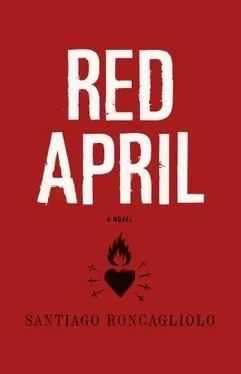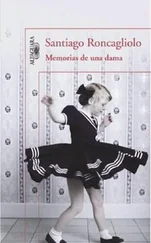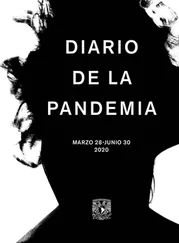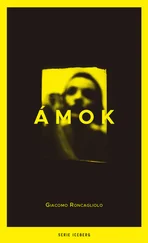In witness whereof this is signed, on Friday, the seventeenth day of March …
Now it was perfect, with appropriate conjugations and correct pauses. Along with the relief of seeing the report completed, there was also the knowledge that there was no murderer loose in the province. No terrorists. The war was over. Not even a crime of passion. Certainly, concerned with the consequences of his being discovered, Justino Mayta Carazo had fled the prosecutor, who did not believe it necessary to denounce him because of that. His fear was also normal.
The prosecutor made the necessary copies and placed them in their respective envelopes. He sent them with the satisfaction of a job well done. He thought about his mother. She would be proud of him. He thought about Edith. In the turmoil of the case, he had forgotten to seek her out during the past week. He ought to stop by the restaurant. He suddenly felt his appetite return.
Thursday, April 6 / Sunday, April 9
“First of all, I want you to know we are very proud of you, Prosecutor Chacaltana. And that the Armed Forces of this Nation count on your Tireless Efforts on behalf of Law and Order.”
It seemed to Prosecutor Chacaltana that all those words were spoken in capital letters, like the certificates, not to mention the medals and flags, covering the walls of Commander Carrión's office behind his immense desk chair. While a lieutenant served two cups of mate , Chacaltana noticed that the commander looked taller from the small armchair where the prosecutor had been seated.
“Thank you, Señor.”
“I must confess we had our doubts as to whether civil justice could contend with a case of this kind. If you don't mind my saying so, not all bureaucrats are prepared to understand what goes on here. Those from Lima, even less so.”
“I am from Ayacucho, Señor.”
“I know. And that too fills us with pride.”
Prosecutor Chacaltana wondered what one had to do to be from a place. What made him more from Ayacucho than from Lima, where he had always lived? He thought his place was where his roots and affections were. And Ayacucho was fine. And getting better.
The weeks following the presentation of his report had been unexpectedly pleasant. Suddenly Associate District Prosecutor Félix Chacaltana Saldívar seemed to have been promoted. He stopped receiving a subordinate's assignments, and even Judge Briceño sent his congratulations in writing on the speed and efficiency with which he had resolved the question of Quinua without needing to alarm the public. The day after he closed the case, he received his new typewriter and enough carbon paper to make the copies he needed for all his cases. Even his dreams had become serene, a curtain of peace closing over his nightmares about fire. And at the end of the week, the commander had sent for him. It was unusual for the commander to meet with functionaries, and even more unusual for him to invite them to his office. The prosecutor felt content, but he did not want to take advantage of his position:
“I believe the entity that should really be thanked for its investigation is the National Police, which gave constant indications of efficiency and commitment …”
“You are an example of humility, Señor Prosecutor. Captain Pacheco has already informed me that this case would not have moved forward if it had not been for your decisiveness and courage.”
“Thank you, Señor.”
The commander leaned back in his chair and drank a little mate . He seemed relaxed. He did not look as menacing as he had the first time. The prosecutor attributed this to the fact that they were gaining confidence in each other. The commander continued:
“The majority of these cases are never resolved. Often proceedings are not even opened because nobody demands it. But it is always better to have everything archived and organized legally. Our best weapon is doing things well, don't you agree?”
“Of course, Señor.”
Feeling authorized to do so, the prosecutor also took a sip of mate . He thought of Edith. He had not wanted to go to her restaurant with the bandage on his neck; he had not wanted her to see his injury. He did stop by one morning to say hello. She had welcomed him with her brilliant smile. He had promised to return and walked out backward so she would not see his wound. But that morning he had removed the bandage. And the scar did not look bad. Perhaps he ought to stop by when he left the commander's office so she would not think he was an opportunist. And to celebrate.
“That is precisely why I wanted to see you,” the commander continued. “Now the time has come for us to concentrate on the elections. We need trustworthy people who believe in legality, and in Peru, to face the great challenges of the twenty-first century.”
“I will be delighted to do whatever I can, Commander.”
“As I am that you'll collaborate with us. But first I'd like to ask a few questions.”
The commander took a folder from his desk. It was a thick file filled with papers and some photographs. The prosecutor recognized the documents. It was his work file, though it looked much thicker than a normal work dossier. The commander put on his glasses and turned several pages. He stopped at one:
“It says here that you personally requested your transfer to Ayacucho.”
“That is correct, Señor. I wanted to return home.”
“You left here after the death of your mother, is that so?”
“Yes, it is. I went to live with her sister, who resided in Lima.”
“How did your mother die? Was she … a victim of terrorism?”
“No, Señor. She died … years before the start of all that …”
A dark mass agitated his memory. He tried to go on without trembling:
“She died in a fire. I was nine.”
For the first time, the commander gave signs of having an emotion.
“I'm sorry,” he said.
“It is all right, Señor. She will always be alive … in my heart.”
“And your father?”
“I never knew him, Señor. I never asked about him. In a sense, I never had a father.”
There was a photograph in his memory. His mother with a man, smiling. He looked white, perhaps a Limenian. It was in his mother's room, on the bureau. No. It was not there anymore. It never had been there.
“It also says that you're married.”
“Yes, Señor.”
“I don't think we've seen Señora Chacaltana here.”
Félix Chacaltana Saldívar felt uncomfortable. He remembered a cup with no coffee, an empty space in bed, the absence of a voice at the bathroom door in the morning.
“There is no Señora Chacaltana anymore, Señor.”
“Did she pass away too?”
“No, no! She simply left. A little over a year ago. She said I … had no ambition. Then I requested my transfer.”
He wondered why he had said that to Commander Carrión. He had not asked for so many details.
“Not having ambitions is a good thing,” the military man replied. “There are more than enough ambitions here. Children?”
With his glasses bent over the folder, the commander looked back and forth from his papers to the prosecutor, who seemed to grow smaller in his chair.
“No. I believe that was another reason she left.”
“That doesn't constitute grounds for divorce.”
“I did not ask for one. I thought that … there was no need. I did not want to marry again. Ever. Excuse me, Señor. Am I authorized to ask why …?”
He did not want to say more. The commander removed his glasses and gave him a father's smile. What probably was a father's smile, at least.
“I'm sorry to ask you these personal questions. Believe me, they're necessary. But I don't need to know any more. I think you're perfect for the work we need. You have no family, and so you can travel. Further, you're a man who loves his home and respects the family, an honorable man.”
Читать дальше












